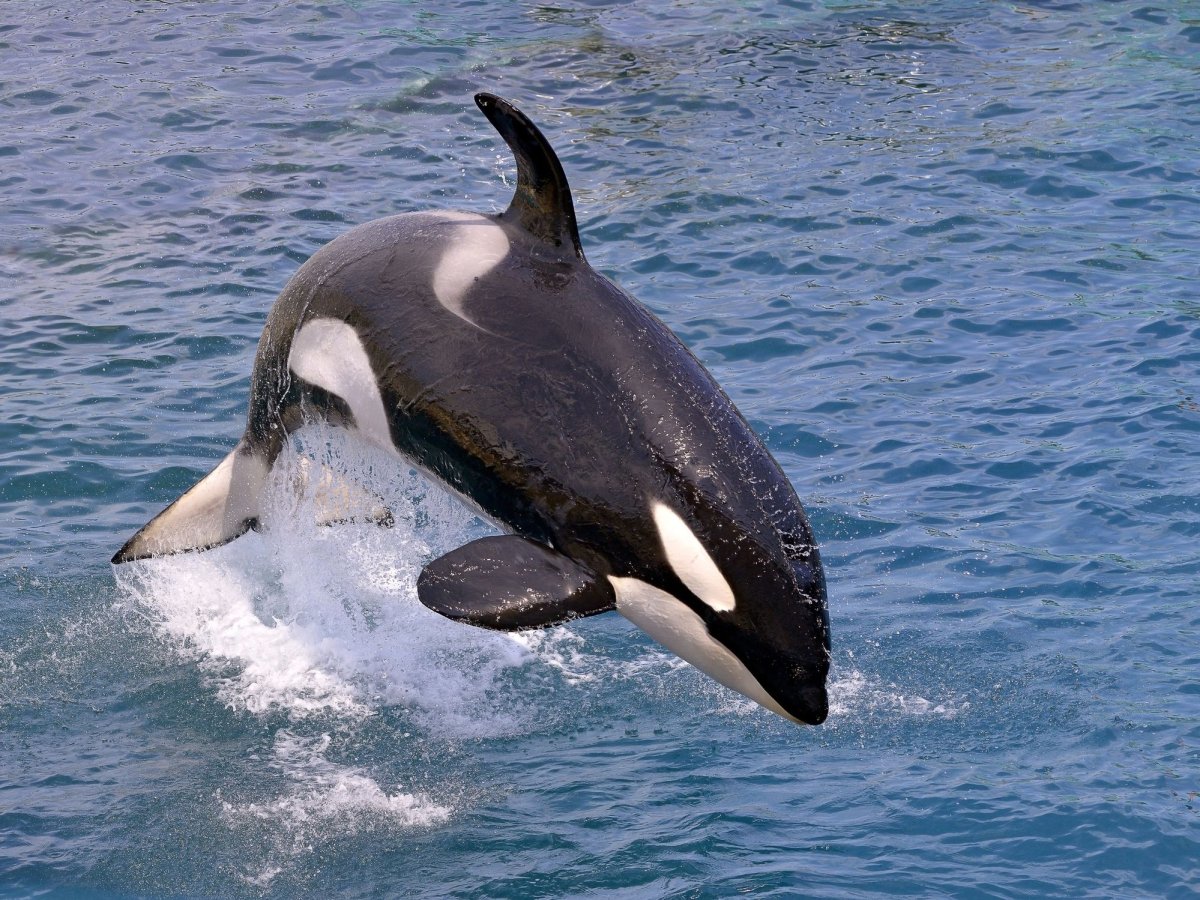Killer whales display personality traits similar to those of humans and chimpanzees—such as cheerfulness and affection—according to a paper published in the Journal of Comparative Psychology.
A team from the University of Girona in Spain analyzed the personality traits of 24 captive orcas—six of which were caught in the wild, while the others were born in captivity—at SeaWorld Orlando, SeaWorld San Diego and the Loro Parque zoo in Tenerife, Spain.
To assess their personalities, the researchers asked trainers and staff who work closely with the killer whales to complete surveys rating each animal on a list of 38 personality traits, including playfulness, independence, stubbornness, bravery, sensitivity, and protectiveness.
The team then compared the results of this survey to those of previous studies looking at the same personality traits in chimpanzees and humans.
As part of their analysis, they used a common personality measure called the five-factor model which describes personality traits using a combination of single adjectives or descriptive phrases. It includes five main personality dimensions—extraversion, agreeableness, conscientiousness, dominance and carefulness.
The findings showed that the personality traits of the whales were similar to those of both humans and chimpanzees (albeit more similar to chimps).
For example, the orcas were found to be similar to chimps and humans when it came to extraversion, which involves being gregarious, playful and sociable. Killer whales and chimps also shared a combination of personality traits for conscientiousness (e.g. being stubborn and protective) and agreeableness (e.g. patient, peaceable and not bullying), in addition to some traits relating to dominance.
"This is the first study to examine the personality traits of killer whales and how they relate to us and other primates," Yulán Úbeda, lead author of the study from Girona, said in a statement. "These similar personality traits may have developed because they were necessary to form complex social interactions in tightly knit groups that we see in killer whales, humans and other primates."

According to the researchers, the new results are an example of evolutionary convergence—the process whereby organisms not closely related independently evolve similar traits as a result of having to adapt to similar environments or ecological niches. In this sense, the personality traits of killer whales and primates are similar because of the advanced cognitive abilities required for their complex social interactions.
Orcas can live into their 90s, spending their time in tightly-knit pods that hunt together and share food. The complex social interactions between individuals in these whale communities are made possible with the help of advanced communication and cooperation skills.
The highly complex behavior of these animals was clearly demonstrated last year when a 20-year-old killer whale received international news coverage for keeping her dead newborn calf afloat for 17 days while swimming hundreds of miles. While some have suggested that this is evidence of mourning or grief, at present this is unclear.
In the context of the latest study, it is important to note that previous research has shown how captivity can alter the personality of killer whales, increasing certain traits such as neuroticism and aggression, in addition to causing physical changes, like dorsal fin collapse.
This means that if wild killer whales had been used for the research, the results may have looked different (although the effects of captivity were not assessed in the study).
SeaWorld, in particular, has been widely criticized for the cramped conditions that its killer whales are kept in. However, studying the personality traits of wild killer whales would be very difficult, so captive animals were used, Úbeda said.
Uncommon Knowledge
Newsweek is committed to challenging conventional wisdom and finding connections in the search for common ground.
Newsweek is committed to challenging conventional wisdom and finding connections in the search for common ground.
About the writer
Aristos is a Newsweek science reporter with the London, U.K., bureau. He reports on science and health topics, including; animal, ... Read more
To read how Newsweek uses AI as a newsroom tool, Click here.








